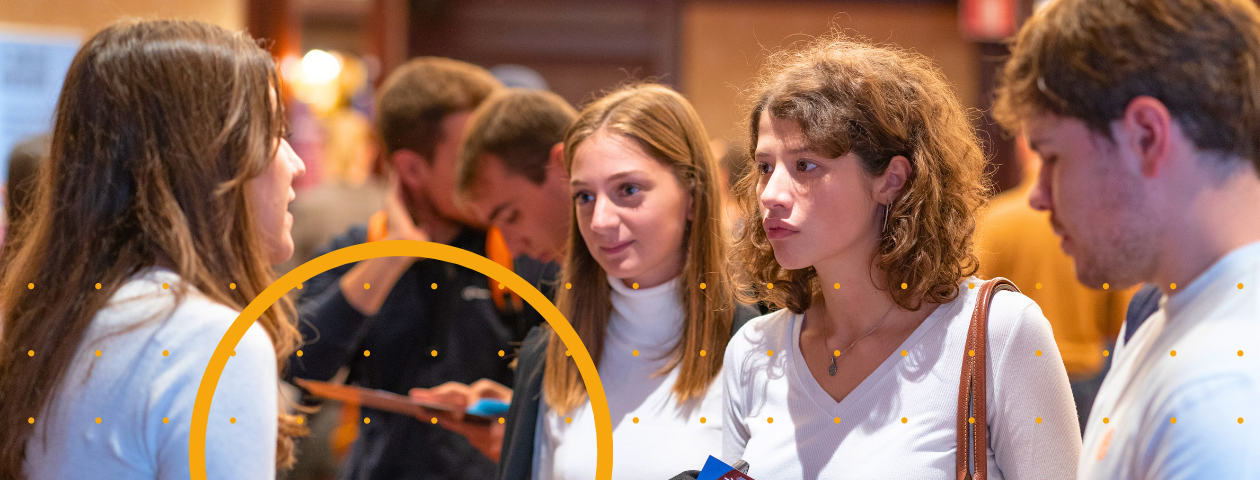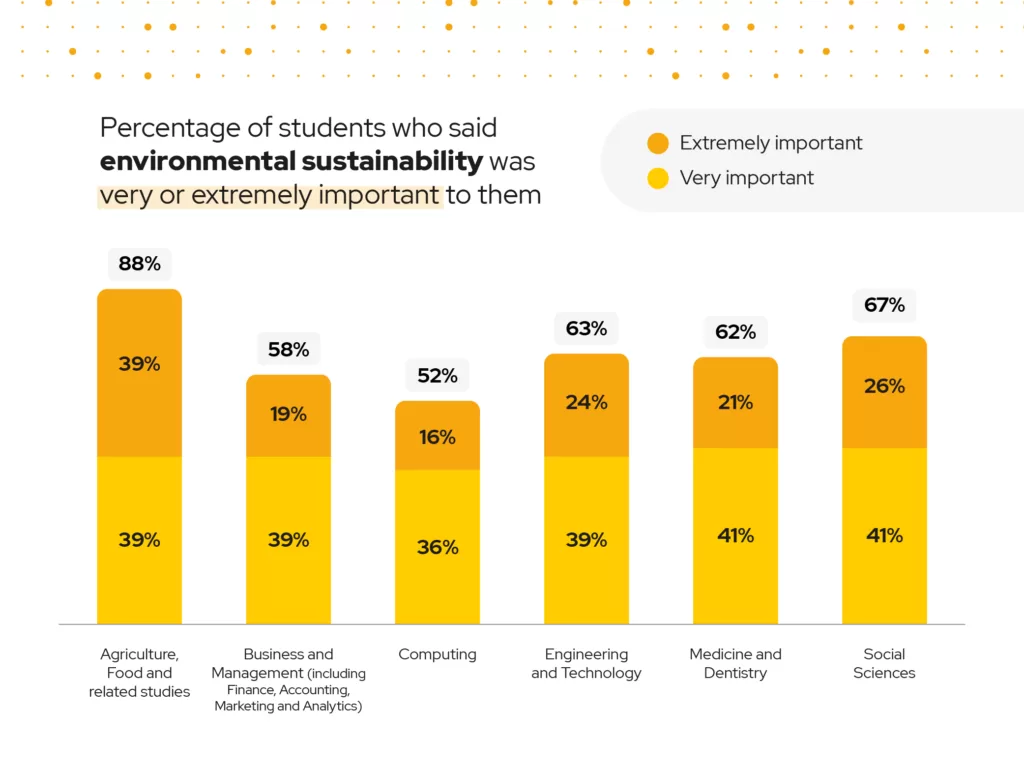
In the QS International Student Survey 2024, prospective international students were asked which factors were most important when assessing a university’s environmental sustainability. 45% of students said how sustainability is integrated into a university’s course content. 62% of respondents also cited environmental sustainability as ‘very’ or ‘extremely’ important to them.
How can higher education institutions meet the needs of these eco-conscious students? Today, we explore strategies and approaches that institutions worldwide can adopt to embed sustainability skills into their educational programmes.
What are sustainability skills?
Sustainability skills encompass a diverse set of competencies that enable individuals to comprehend and tackle environmental, social, and economic challenges, aligning closely with the Sustainable Development Goals. These skills include critical thinking, social and ethical responsibility, adaptability and resilience, and are necessary if we are to build a more sustainable world. However, integrating these skills into the curriculum, and therefore into the workplace after students graduate, remains a significant challenge.
At the QS Higher Ed Summit: Europe 2024, embedding sustainable principles was the focal point in panel discussion ‘Measuring sustainability’. According to Virgine Le Barbu, Global Sustainability Director at Lenovo, there is a disconnect in finding individuals who possess all the necessary competencies to thrive in today’s business environment.
“It’s very difficult to find people with a business mindset to integrate sustainability in a new way of operating in a company. I think we are missing a more generalist approach today – being able to navigate the corporate world. And when you think about all the regulations coming, you need to have talents who are trained on this regulation and who are able to bring something unique to us, that is the knowledge.”
“We need systemic change”, Virgine continued. “We need people who have this mindset and the flexibility to have the resilience to come into a business and be ready to change the system. Again, it is not that easy to find today.”
Embedding sustainability across subject fields
Sustainability should not be limited to environmentally-focused courses; instead, it should be woven into all disciplines. Below, in the five most popular subject areas according to the QS International Student Survey 2024, we see environmental sustainability remains consistently important.

“The future is AI. Either you accept it or not. I think it’s better to incorporate it into study as a tool before university education loses it importance.”
A Business and Management student, quoted in ‘Universities, students and the Generative AI imperative’ report
Moving with technology and innovation in mind
In a QS report, titled “Universities, students and the Generative AI imperative”, we examined the impact of Generative AI on universities and students. 74% of students expressed a positive view of AI’s current role in today’s society, with many eager to learn more about Generative AI. Additionally, 47% of students believe it is essential for universities to integrate Generative AI into their programmes.
However, the environmental impact of Generative AI is a growing concern due to its high energy and water consumption. Universities must leverage AI tools responsibly, and incorporate discussions on the environmental footprint of technology in courses across their course portfolio.
Embed sustainability skills in the curriculum with QS 1Mentor
QS 1Mentor analyses over 200 million job adverts to understand businesses requirements and empower higher education in an ever-changing market.
QS 1Mentor can help universities embed sustainability skills more effectively into their curriculum by identifying the latest industry and sustainability trends. Ensuring that students are equipped with relevant skills to address environmental challenges and meet the evolving expectations of employers in sustainability-focused roles is crucial for their future success.
Kemi Jona, Vice Provost for Online Education and Digital Innovation at the University of Virginia explores the importance of platforms like QS 1Mentor in bridging the skills gaps.